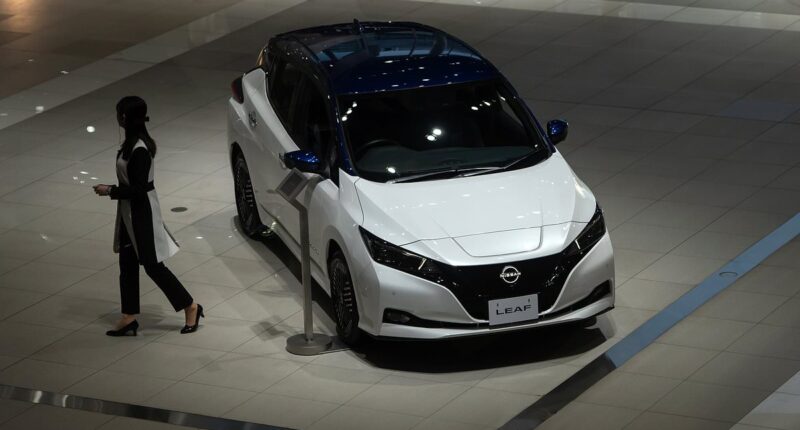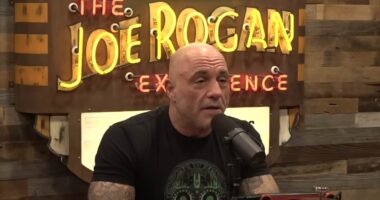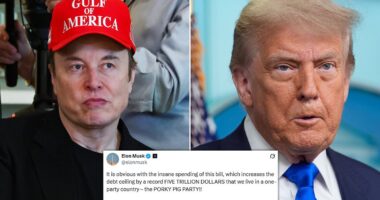Nissan is facing tough times. The Japanese automaker, already reeling from failed merger talks with Honda, just suffered another blow.
Moody’s this morning downgraded its credit rating to ‘junk’ status, citing weak profitability and an aging vehicle lineup.
A junk credit rating signals to investors that lending money to Nissan is now considered a very risky bet.
In turn, the company, which sold the fifth most cars in the U.S. in 2024, will likely have to pay higher interest rates to borrow money.
The timing of the downgrade couldn’t be worse for Nissan. In November, the company introduced a restructuring plan aimed at eliminating 9,000 positions and reducing production by 20 percent.
At the time, executives told the Financial Times that the company only had enough cash to survive until the end of 2025.
Recently, Nissan’s hopes for a merger with Honda, a stronger Japanese automaker, were dashed less than two months after the announcement.
Nissan’s challenges go beyond financial issues. The company’s outdated range of vehicles, relying on obsolete technologies, is facing tough competition in crucial markets.

Nissan’s credit rating just took a hit – a global leader downgraded the company to ‘junk’ status
Its bestseller, the Rogue SUV, is losing ground to heavyweights like the Honda CR-V and Toyota RAV-4 in the crucial US market.
And now, Moody’s warns that demand is weakening in China, Japan, and the United States.
In a statement to Daily Mail, Nissan said it is attempting to streamline its operations to remain profitable.
The company needs to sell 2.5 million cars annually to maintain profitability under its restructuring plan.
‘Nissan is taking immediate turnaround actions to recover its performance and rebuild to a leaner, more resilient business structure capable of swiftly adapting to changes in the market,’ a Nissan spokesperson told Daily Mail.
‘We remain committed to transparency and will keep our stakeholders informed as we implement measures aimed at improving our financial performance and restoring confidence.’
This isn’t the first time credit agencies have raised red flags. S&P Global Ratings downgraded Nissan below investment grade back in March 2023 and revised its outlook to negative last month.
In December, Nissan’s chief executive, Makoto Uchida, said the company was taking a 50 percent pay cut.

Nissan’s CEO, Makoto Uchida, said he took a 50 percent pay cut while the company announced a slate of layoffs

Nissan’s car production has continuously relied on older mechanical technology
He admitted that the company had not built out enough battery manufacturing the compete in the raging hybrid vehicle market in the U.S.
‘This has been a lesson learned and we have not been able to keep up with the times,’ he said at the time.
China Chill
Nissan joins a slate of automotive manufacturers that have worried about exploding sales from Chinese automaker giants.
Brands such as BYD, Chery, Geely, and SAIC Motor, all manufacturers continuing to enjoy the results of massive banking subsidies from the Chinese government, have booming sales.
After domestic sales records that ate into foreign automaker’s sales, the Chinese brands are looking to expand into other countries.
Several global automakers, like Volkswagen, BMW, Mercedes-Benz, Honda, Toyota, Ford, Stellantis, and GM, have all expressed concern about the low-cost cars reaching the markets they compete in.
















